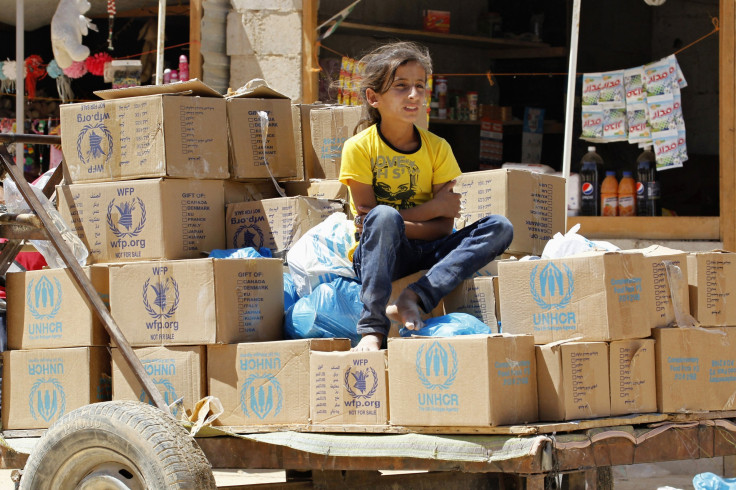Syrian Refugee Crisis: In Jordan, Food Aid Cut For 200,000 Amid Financial Shortfall, World Food Program Says

More than 200,000 Syrian refugees woke up last week to text messages saying their food aid had been cut by the World Food Program, or WFP. Officials with the organization said they tried their best to maintain food delivery to refugees, but were no longer able to meet growing needs amid financial shortfall, BuzzFeed reported Friday.
“Let’s face the horrible situation here,” Abeer Etefa, the senior Middle East communications officer for WFP, told BuzzFeed. “We are facing a huge shortage of funds. We used to support around 100,000 refugees at the camps in Jordan in addition to 461,000 refugees outside the camps, but now with the low amounts of contributions we cannot afford all that.”
If you really want to help @refugees in #Jordan w/ guarantee that 97% in #cash reaching the most in need pls help http://t.co/uKurhLjXK6
— Andrew Harper (@And_Harper) September 4, 2015Jordan is officially home to some 640,000 refugees who have fled war in Syria, according to United Nations statistics. Yet government sources said the total number of Syrians in the country of some 6.5 million people is actually double that. Refugees are not legally allowed to work in Jordan, leaving many of them dependent on aid, although many children are able to slip under the radar and work low-paying, informal jobs.
In recent months, the WFP has sought to lower its expenses, slashing in half its assistance to 200,000 Syrians. Etefa said the organization was forced to end food aid for 211,000 people last week, but would continue supplying help for 350,000 refugees in Jordan.
For another 211,000 #Syrian @refugees in #jordan they got this SMS frm @WFP. How to survive on close to 50 cents/day? pic.twitter.com/2rLjPATrkP
— Andrew Harper (@And_Harper) September 2, 2015“Although some countries like the United States and Canada were very generous [in their donations], we still cannot cover all the refugee needs," Etefa told BuzzFeed. "We still need more donations, and then we may take back the 211,000 refugees who were excluded from the WFP food aid program. Frankly, unless we receive new donations, I am afraid that will be impossible.”
Hamoodah Mekawi, a Jordanian journalist, called the situation “crazy” on a Facebook page for the Al-Zaatari refugee camp. “Taking that decision is like taking the decision of cutting the lifeline for all those people,” he said, according to the news website.
© Copyright IBTimes 2024. All rights reserved.






















